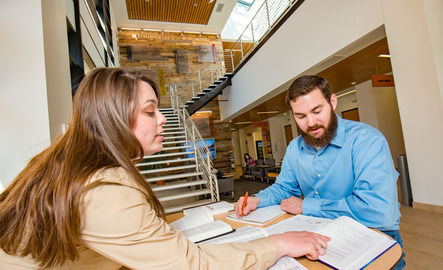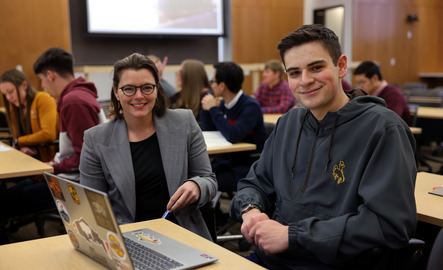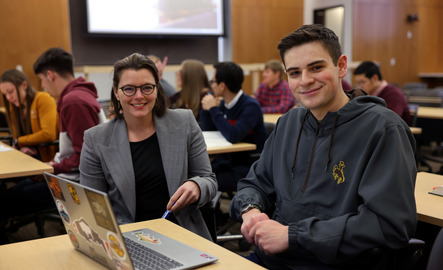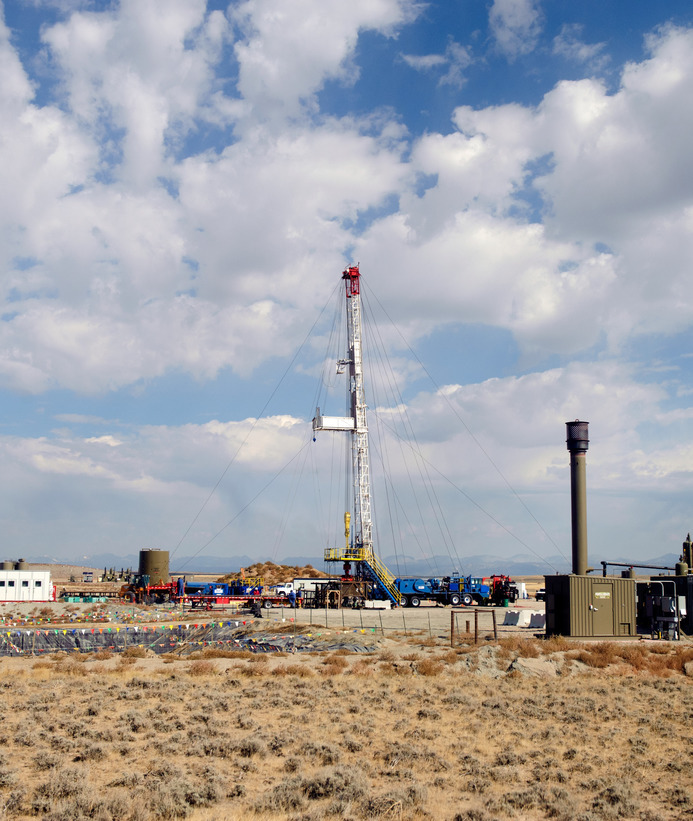What is Carbon Capture, Utilization, and Storage?
This certificate was created in conjunction with the College of Engineering and Physical Sciences and the College of Business to provide a unique one-of-a-kind certificate online, on-campus or via a hybrid option. CCUS enables energy and industrial processes with energy as a by-product to mitigate emissions. The importance of CCUS stems from increasing interest in the ability to reduce emissions on a larger scale. UW is a recognized leader in several aspects of this growing field.

During the certificate program, you will take a multitude of classes that cover technology, economics and policy, communication, energy, sustainability and climate change mitigation.
Here are just a few classes you might take as a CCUS student:
- Energy Project Outreach and Communications
- Carbon Capture and Storage
- Geological Carbon Sequestration
- Global Climate Governance
- Energy Finance

View the full carbon capture, utilization and storage (CCUS) undergraduate certificate curriculum.
The School of Energy Resources is proud to feature some of the University of Wyoming’s most respected and highly cited faculty. Among them is Professor Tara Righetti, a leading legal scholar whose work spans hydrogen, nuclear, fossil fuel and renewable energy, land use, and decarbonization. She is widely published in national and international law journals and is frequently cited for her expertise in energy law and carbon storage policy—particularly the storage of CO₂ in subsurface federal pore space, an area vital to Wyoming’s future. Professor Righetti is regularly consulted on major energy and CCUS projects across the country. She serves as a trustee-at-large with the Foundation for Natural Resources and Energy Law and was a 2021–2022 Fulbright Scholar in France, where she studied energy and workforce transition policies. Most recently, she was appointed to the White House Council on Environmental Quality (CEQ) task force focused on improving permitting for CCUS projects on federal lands and the outer continental shelf. At SER, students benefit directly from the insights of nationally recognized experts like Professor Righetti—proof that you truly learn from the best.

What can you do with a CCUS Certificate?
There’s a growing need for professionals with knowledge of emission mitigation. Demand statistics demonstrate this to be a growing field with an anticipated need for more than 100,000 jobs in decarbonization by 2035.
- Environmental Scientist
- Chemical Technician
- Occupational Health and Safety Specialist
- Project Developer/Manager
- Environmental Protection Technician
- Carbon Capture Engineer/Technician
- Reservoir Engineer
- Energy and Environmental Law Aide
- Energy Finance Analyst
- Environmental Consultant
- Regulatory Compliance Specialist
- Public Land Manager
While the CCUS certificate can be taken as a standalone program, you can also earn this certification as a current student. Here are some majors that work well with the CCUS certificate:
Carbon capture, utilization and storage (CCUS) is an innovative climate solution that captures carbon dioxide emissions from sources like power plants and factories before they reach the atmosphere. Instead of releasing this CO₂, it's either reused, such as turning it into materials such as concrete or fue, or safely stored deep underground. CCUS plays a big role in helping industries reduce their environmental impact and move toward cleaner energy, making it an exciting field for students interested in sustainability, engineering or environmental science
The School of Energy Resources has a whole section of their website dedicated to alumni and student stories. Be sure to check it out and read their stories!
"The diverse backgrounds and expertise of the professors teaching the CCUS certificate prepares the student to succeed in this ever-growing industry."
- Montgomery Hughes | SER Alum


